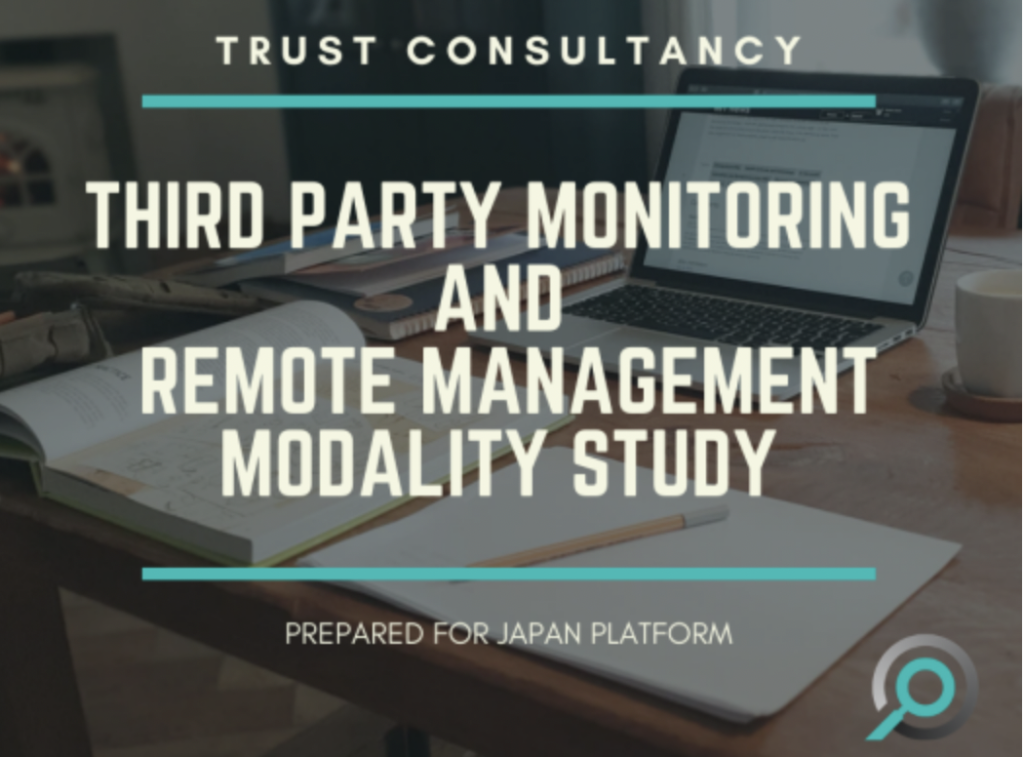In recent years, the use of Third-Party Monitoring (TPM) in aid projects has expanded among a range of humanitarian organizations to comply with donor requirements for external evaluations. In parallel, some member NGOs in insecure locations have adapted remote management modalities to implement projects in partnership with national partners and/or locally recruited personnel in order to avoid negative consequences of suspending humanitarian activities for maintaining project delivery.
In this context, the Japan Platform Foundation (JPF) intended to evaluated the effectiveness of the TPM and remote management processes and modalities that it and member NGOs have implemented in the last years.
About the Project
The research focused on effectiveness of the TPM and remote management processes and modalities that have been adapted and implemented in Yemen, Syria, Afghanistan, South Sudan, Iraq and Palestine. While the primary aim was to understand how approaches, challenges and strategies for TPM and remote management varied across these contexts, the scope for data collection extended throughout the MENA region as well as East Africa. This allowed for the research team to consider a broader range of perspectives and experiences to develop findings which have strong relevance to the wider humanitarian community.
The main objectives of the research study were to conduct a review of current practices of TPM and approaches to remote management, identify and analyze common challenges, and share and discuss lessons learned, recommendations and best practices. With this scope, the findings of the research study relate to all stakeholders in the aid sector’s use of TPM and/or remote management.
Methodology
Trust Consultancy & Development used a mixed-methods approach, collecting quantitative and qualitative data and information from multiple types of sources. This allowed for a holistic understanding of key issues and themes that reoccured throughout the research process.
Desk review: through the desk review, the research team gained insight into current practices and existing research related to both TPM and remote management.
Remote Key Informant Interviews (KIIs): the research team conducted 47 KIIs, with 27 related to the TPM component and 20 related to the remote management component, exploring participants’ experiences with these components.
Online Survey: the research team distributed an online survey to the wider humanitarian community to include the perspectives of a broad range of actors from different contexts and involvement with different phases of project design, implementation, monitoring and evaluation.
Dissemination Workshop: the workshop was attended by 65 participants who had been invited through the JPF network or due to their contact with the research study.
Main Findings of the Evaluation
1. Aligning expectations as early and thoroughly as possible appeared critical to success.
2. Implementing actors have an important role to play in promoting community acceptance and to provide deep contextual knowledge in areas under monitor.
3. Responsiveness of NGOs and partners was considered important to all involved stakeholders.
In order to share the findings of the study with a public audience, the study was finalised through a dissemination workshop held on January 20th. A recording of the webinar is available through the link below.


